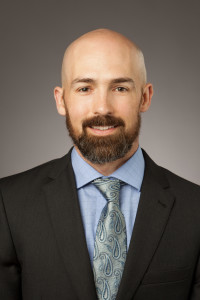

Dry Needling – Pr. Kearns
Les formateurs

Dry Needling (DN) is a powerful, adjunctive tool for the orthopaedic manual physical therapist. However, when not placed in the context of a thorough subjective history, a comprehensive neuromusculoskeletal examination, and appropriate differential diagnosis, it can be challenging to accurately identify the most appropriate patients and achieve optimal patient outcomes.
Explication du cours
This course is designed to bridge the gap between DN theory to how this tool can be integrated into clinical practice seamlessly by presenting a case based approach to DN with an emphasis on clinical reasoning in order to provide first time exposure and education to clinicians on DN as well as review and improve effective technique with clinicians currently utilizing DN.
Participants will cover the most commonly implicated muscles involved with frequently encountered upper & lower quadrant musculoskeletal dysfunctions. With concerns about complications from the invasive nature of dry needling, ample amount of lab time will be spent on surface anatomy and palpation to ensure accurate location of relevant regional anatomy and safety of technique.
La formation se donne en anglais !
Objectifs de la formation
Upon completion of this course, participants will be able to:
- Knows basic terminology.
- List the different histochemicals identified as being present in an active myofascial trigger point. (Cognitive: Knowledge)
- List the differences between an active and latent myofascial trigger point. (Cognitive: Knowledge)
- Understands theory.
- Explain the major tenets of each trigger point dry needling theoretical model. (Cognitive: Comprehension)
- Identify the differences between sympathetic, central and peripheral pain mechanisms that are considered with trigger point dry needling. (Cognitive: Analysis)
- Apply principles.
- Uses principles of pain science and trigger point dry needling as intervention in selected mock patient case studies. (Cognitive: Application)
- Evaluate ideas.
- Appraise the appropriateness for trigger point dry needling through subjective and objective presentation in mock patient case studies. (Cognitive: Evaluation)
- Demonstrate awareness of presentation.
- Acknowledge the precautions and/or contraindications in a case presentation when considering trigger point dry needling. (Affective: Receiving)
- Contribute to class discussion of mock patient case studies. (Affective: Responding)
- Demonstrate psychomotor skills.
- Detect active and latent trigger points through digital palpation. (Psychomotor: Perception)
- Practice under supervision of course instructor trigger point dry needling of muscles presented during the course. (Psychomotor: Guided Response)
- Demonstrate safe application of trigger point dry needling to the upper trapezius as demonstrated by course instructor. (Psychomotor: Mechanism)
- Proceed through identification of target muscle, patient set up, use of clean needle technique, and treatment of target muscle without cuing. (Psychomotor: Complex Overt Response)
Programme
Day 1
0800 Course Registration-Welcome and Introductions
0815 Lecture: Online Material Review: Dry Needling History, Theory, Mechanisms, Scope of Practice, and Literature Review (90 mins)
0945 Lecture: Clean needle technique and needle handling (30 mins)
1015 Morning Break
1030 Lab: Shoulder Girdle Muscles: Surface Anatomy (30 mins)
1100 Lab: Shoulder Girdle Muscles: Dry Needling (60 mins)
1200 Lecture: Shoulder Girdle Case Studies (45 mins)
1245 Lunch Break
0145 Lab: Arm Muscles: Surface Anatomy (30 mins)
0215 Lab: Arm Muscles: Dry Needling (60 mins)
0315 Afternoon Break
0330 Lab: Forearm Muscles: Surface Anatomy (30 min)
0400 Lab: Forearm Muscle: Dry Needling (60 min)
0500 Lecture: Arm and Forearm Case Studies (30 min)
0530 Adjourn – Total Time Day 1 = 8 hours (480 min)
Day 2
0800 Questions from previous day
0815 Lab: Cervical Spine Muscles: Surface Anatomy (60 mins)
0915 Lab: Cervical Spine Muscles: Dry Needling (90 mins)
1030 Morning Break
1045 Lecture: Cervical Spine Case Studies (60 mins)
1145 Lab: Lumbar & Posterior Hip Muscles: Surface Anatomy (30 min)
1215 Lab: Lumbar & Posterior Hip Muscles: Dry Needling (60 min)
0115 Lunch Break
0215 Lecture: Lumbar & Posterior Hip Muscles Case Studies (30 min)
0245 Lab: Anterior Hip/Thigh & Posterior Thigh Muscles: Surface Anatomy (30 min)
0315 Afternoon Break
0330 Lab: Anterior Hip/Thigh & Posterior Thigh Muscles: Dry Needling (60 min)
0430 Lecture: Anterior Hip/Thigh & Posterior Thigh Muscles Case Studies (30 min)
0500 Q&A (30 min)
0530 Adjourn Total Time Day 2 = 8 hours (480 min)
Day 3
0800 Lab: Lower Leg Muscles: Surface Anatomy (30 min)
0830 Lab: Lower Leg Muscles: Dry Needling (60 min)
0930 Morning Break
0945 Lecture: Lower Leg Muscles: Case Study (30 min)
1015 Lab: Upper Quadrant Round Robin (75 min)
1130 Lab: Lower Quadrant Round Robin (60 min)
1230 Lunch Break
0130 Lab: Q&A and Technique Review (75 min)
0245 Afternoon Break
0300 ASSESSMENT: Day 1 Muscles check off (60 mins)
0400 ASSESSMENT: Day 2 Muscles check off (60 mins)
0500 Q&A (30 min)
0530 Adjourn Total Time Day 3 = 8 hours (480 min)
Total Onsite Course time (including Assessments): 24 hours
Day 4 & 5 : Advanced course
Includes sensitive areas and electrostimulations
Frais d'inscription
Prix standard : 650€
Prix advanced : 400€
Prix formation complète 5 jours : 950€
Dates
Cours standard : 30-31 /01 + 1/02/ 2026
Cours advanced : 2-3/02/ 2026
Horaire : 8h-17h
Lieu
Campus Erasme – HELB Bât P
Route de Lennik 808
1070 Bruxelles
Public cible
Ouverte à tout kinésithérapeute, ostéopathe, médecin. Pas de pré-recquis en Thérapie Manuelle demandé
Inscription
- GARY KEARNS : DRY NEEDLING (choix: Standard) — €650,00 TVAC
- GARY KEARNS : DRY NEEDLING (choix: Advanced) — €400,00 TVAC
- GARY KEARNS : DRY NEEDLING (choix: Formation complète) — €950,00 TVAC

